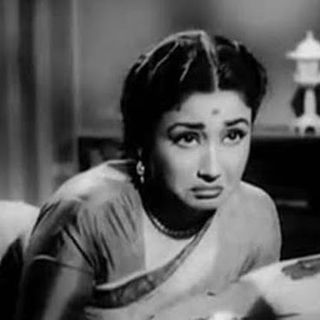
It’s Okay: To Feel A Little Less Hot Under Lockdown
In the never-ending race to look like a generic ideal, why not take quarantine as a welcome time-out?

In It’s Okay, we defend our most embarrassing, unpopular opinions.
Sun’s out, and so’s the coronavirus, which means most beach bodies that would speckle the streets, cafes, and beaches, are dutifully attempting to flatten the curve at home. Unfortunately, as public opinion goes, flattening the curve isn’t all that flattering to our meat-suits. Rumors of a Covid15 — or the fifteen pounds (about 7kgs) we’re all supposed to put on while locked down — are doing the rounds, scaring people into drawing up workout and diet plans rigid enough to make a fitness influencer flinch. The follow-through? That’s another story.
What’s a little bothersome, however, is the onslaught of internet content geared at self-deprecation. Talk of eating one’s weight in pasta, socially distancing from the weighing scale, not fitting into anything, and more abrasive fatphobic Whatsapp forwards. The pretense of loving our bodies — whether via the stringent demands of a diet and exercise routine, or via the equally stringent mental calisthenics of body positivity — is falling apart. We’re all stuck hating our blameless meat suits, and no surgeon, steroid, or treadmill can make it go away.
We’re all under the impression that a good feminist would never disparage their own body, or have moments of self-doubt. But that idea is nonsense because everyone has had phases of dislike for their body — from the fittest actress to the most sanctimonious body positivity influencer, everyone’s looked at their mirror and let out a resounding groan. Disappointment with what we look like, and what we wished we looked like, is never our fault because it’s a function of the relentless fitness and glamor propaganda we’ve internalized from people who want to sell us things like yoga pants and slim sauna belts.
Self-deprecating our appearance, especially in quarantine, feels really cathartic. This is because we often believe that when looking good fails us, turning this failure into relatable quips makes us just as likable. The only problem is, the more we vocalize our self-hatred, the more often we cement it into our heads. Plus, publicly roasting our own appearance often comes across as tactless to other people. So, if ranting isn’t the best for us, how do we make peace with occasionally disliking our bodies? We cut ourselves some slack, and procrastinate.
Related on The Swaddle:
Body Positivity Is Excluding People; What If We Got Rid of Beauty Instead?
No, seriously. Let quarantine be the hotness time-out we all need and deserve. Rather than stressing about what we look like, we take a break from the persona we’re expecting ourselves to be around others, and ourselves. Today, we feel a little gross and won’t rate ourselves a ten, and that’s okay because we’re focusing on getting hot again tomorrow. Then, tomorrow, we rinse and repeat.
What’s helpful about postponing overthinking, is that we’re placing less value on hating ourselves, and so, showing our lack of interest in hating ourselves. We’re rescheduling hating our bodies because we have other pesky, yet more important inconveniences to channel our hatred towards, like staying at home, running out of wine, and doing the dishes. This way, the full-powered hate we constantly feel for ourselves while stuck at home becomes a dull, easily distractible thrum at the back of our heads. Just like that exam to study for, or that email you must send.
Then, maybe when we’re tired of doing this, we cut ourselves some slack again, and work out, take a shower, or swipe on lipstick. This too, is fine, because this emotion will come from a place of attempting to care for ourselves by looking good, rather than to compete with the people around us. It’s just as alright to want to feel hot on some days, as it is to not feel hot on others. This is a pandemic after all — no better time trick our brain into doing what makes us happiest, as long as it knows we must stay home.
You’ll be all right.
Aditi Murti is a culture writer at The Swaddle. Previously, she worked as a freelance journalist focused on gender and cities. Find her on social media @aditimurti.
Related


The Buzz Cut: All The Weird Ways Governments Are Implementing Lockdowns
